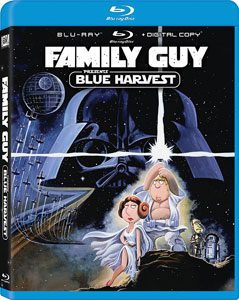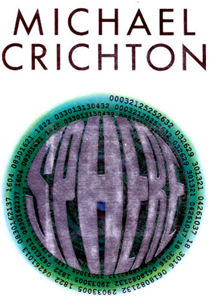Most Michael Crichton novels have an immediate hook, which is often right there in the title, or at least the one-sentence description: “The Andromeda Strain” is about a virus from space, “Jurassic Park” is about cloning dinosaurs, and so forth. “Sphere” (1987), though, is a puzzle box.
On your first read, you don’t know what it’s about. That’s part of why it’s so neat. On the other hand, it has less repeat-read value than some other Crichton books once you know the secrets (but I won’t hold that against it).
Exploring the human mind
That said, “Sphere” retains plenty of talking points. I think Crichton – consciously or subconsciously (allusion to the book’s subject intended) – was riffing on Arthur C. Clarke’s “2001: A Space Odyssey.” Both feature the mystery of a suddenly appearing alien object (a monolith in that case, a sphere in this case) in a scarily unknown environment (space there, the ocean floor here). It’s striking how the dialog of characters in the sphere’s thrall (notably, Norman and Beth in the climactic final sequence) comes in the clipped, wholly-logical-to-the-speaker cadence of HAL-9000.

“Sphere” (1987)
Author: Michael Crichton
Genres: Science fiction, thriller
Setting: South Pacific Ocean floor
The point of departure is that Clarke is exploring a computer mind and Crichton is exploring human minds – and finding that the latter are perhaps weirder and scarier. He notes that very few people – probably no one – has achieved full self-awareness. Crichton taps into the Jungian theory that every person has a shadow self that they can’t or won’t fully get in touch with.
(Whenever I read a book centered on human brainpower, I always think of George tapping into that unused 90 percent of his brain on “Seinfeld.” Crichton gets to that notion before George.)
Naturally, “Sphere” includes theorizing and philosophizing about the nature of the sphere (Is it technology? Is it God?), as well as the future USA spaceship it is housed in. But more impressively, Crichton dramatizes the questions even before (on the first read) we realize he’s doing it. Because while the scientific crew of the habitat believes the sphere is causing the appearance of giant squids and other threats (a scary enough notion right there), it’s actually the people themselves who are doing it.
Great characters
This might be Crichton’s best character novel, and by its very nature, it has to be a good one. Norman is the main character (it’s written in third person, but the author/reader always sticks with Norman), a psychiatrist whom many readers can relate to (he’s a pudgy, tired middle-aged guy who might be the clichéd target audience of Crichton) or at least appreciate as a “normal” person.
Beth is the insecure biologist, Harry the antisocial mathematician, Ted the enthusiastic space-travel theorist, and Barnes the rigid Navy man who leads the group. It’s easy to describe these people briefly because they are, initially and purposefully, stereotypes. But “Sphere” gets at who they really are.

Part of grand tradition
In addition to “2001” and Crichton’s own “The Andromeda Strain” (which uses the same “scientists assemble” launching pad as this novel), the James Cameron film “The Abyss” must be mentioned. It came out two years after this book and is very similar. Both are about encounters with alien life, and specifically, both feature a sequence of a desperate person swimming through freezing water from one airlock to another. I love “The Abyss,” but “Sphere” got there first, and it has a neater ending.
That’s not to say Crichton invented a new story here. Tales of people manifesting things with (alien-enhanced?) brainpower calls to mind “Forbidden Planet” and “Solaris.” And “Event Horizon” (1997), which came out a year before the “Sphere” movie adaptation, is like if you took “Sphere’s” backstory about a journey through a black hole and leaned heavily into the horror genre.
Despite having a place in a continuum of sci-fi books and films about capabilities of human brainpower that are so untapped they seem supernatural, “Sphere” is Crichtonian in the way it blends mysteries, philosophizing and charts with a steadily intensifying plot.
“Sphere” pushes further toward speculation and away from theories that can be backed up with data and extrapolation from current science. But that’s what makes it a spine-tingler on the first read: We didn’t know Crichton (a hard SF writer out of the gates with “Andromeda”) would go there. “Sphere” is all the better for that surprise.

